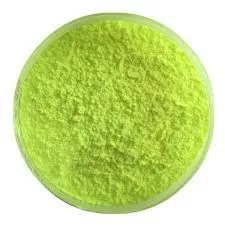The Impact of Effluent Chemicals on Environment and Health
Effluent chemicals refer to a wide range of substances that are discharged into the environment, predominantly through wastewater from industrial processes, sewage systems, and agricultural runoff. These chemicals can have significant repercussions on both the environment and human health, making the monitoring and management of effluent a critical area of concern.
One of the primary issues posed by effluent chemicals is water pollution. Industrial facilities often release wastewater that contains heavy metals, toxic chemicals, and organic pollutants. For instance, industries such as textiles, pharmaceuticals, and manufacturing contribute to the introduction of dyes, solvents, and other hazardous substances into local water bodies. This not only compromises the quality of water but also disrupts aquatic ecosystems. Aquatic life, including fish and amphibians, can suffer from bioaccumulation of these toxins, leading to declines in population and biodiversity.
The environmental ramifications extend beyond just aquatic systems. Effluent that infiltrates soil can contaminate groundwater reserves, posing risks to drinking water supplies. Studies have shown that pollutants like nitrates and phosphates can lead to eutrophication, a condition where excessive nutrients in water bodies foster algal blooms. These blooms deplete oxygen levels in water, resulting in dead zones where aquatic life cannot survive. This cycle not only affects marine ecosystems but also impacts local communities reliant on these water sources for agriculture, drinking, and recreation.
effluent chemicals

In addition to environmental impacts, effluent chemicals pose serious risks to human health
. Exposure to contaminated water can lead to various health issues, ranging from acute illnesses to long-term health problems. For example, heavy metals like lead and mercury can cause neurological damage, while pesticides found in agricultural runoff are linked to a myriad of health problems, including hormonal disruption and increased cancer risk. Vulnerable populations, especially children and pregnant women, are particularly at risk, as they may experience more severe health consequences from exposure to these pollutants.Efforts to mitigate the impact of effluent chemicals have been made through regulatory frameworks and technological advancements. Governments worldwide have set guidelines and limits on the discharge of certain pollutants. The implementation of wastewater treatment plants is also essential in treating industrial effluent before it is released into the environment. However, compliance with these regulations is not always consistent, and enforcement can be challenging.
Moreover, adopting sustainable practices in industries can significantly reduce effluent chemicals' impact. Techniques such as cleaner production, recycling of by-products, and utilizing biodegradable materials can minimize the amount of hazardous waste generated. Public awareness and education regarding the importance of water conservation and pollution prevention are equally crucial, encouraging communities to engage in responsible practices and support local clean-up initiatives.
In conclusion, the issue of effluent chemicals is multifaceted, affecting the environmental, ecological, and human health spheres. Striking a balance between industrial growth and environmental protection is imperative. Continued research, regulation, and public engagement are essential to tackle the challenges posed by effluent chemicals and safeguard our water resources for future generations. Through collective efforts, we can create a healthier environment conducive to both human life and the natural ecosystems that sustain us.

